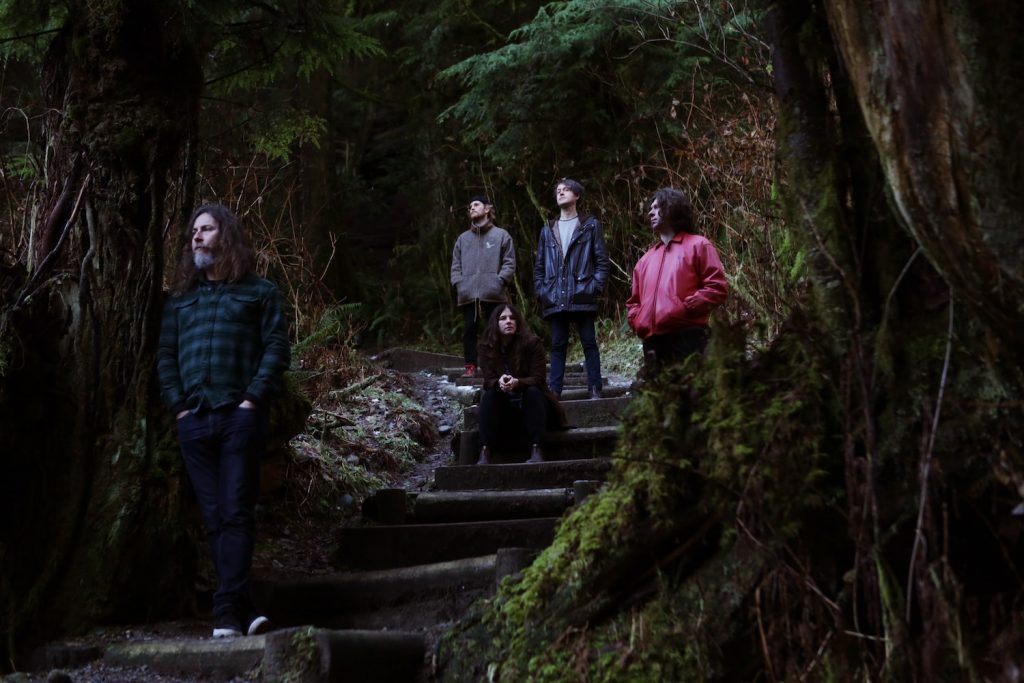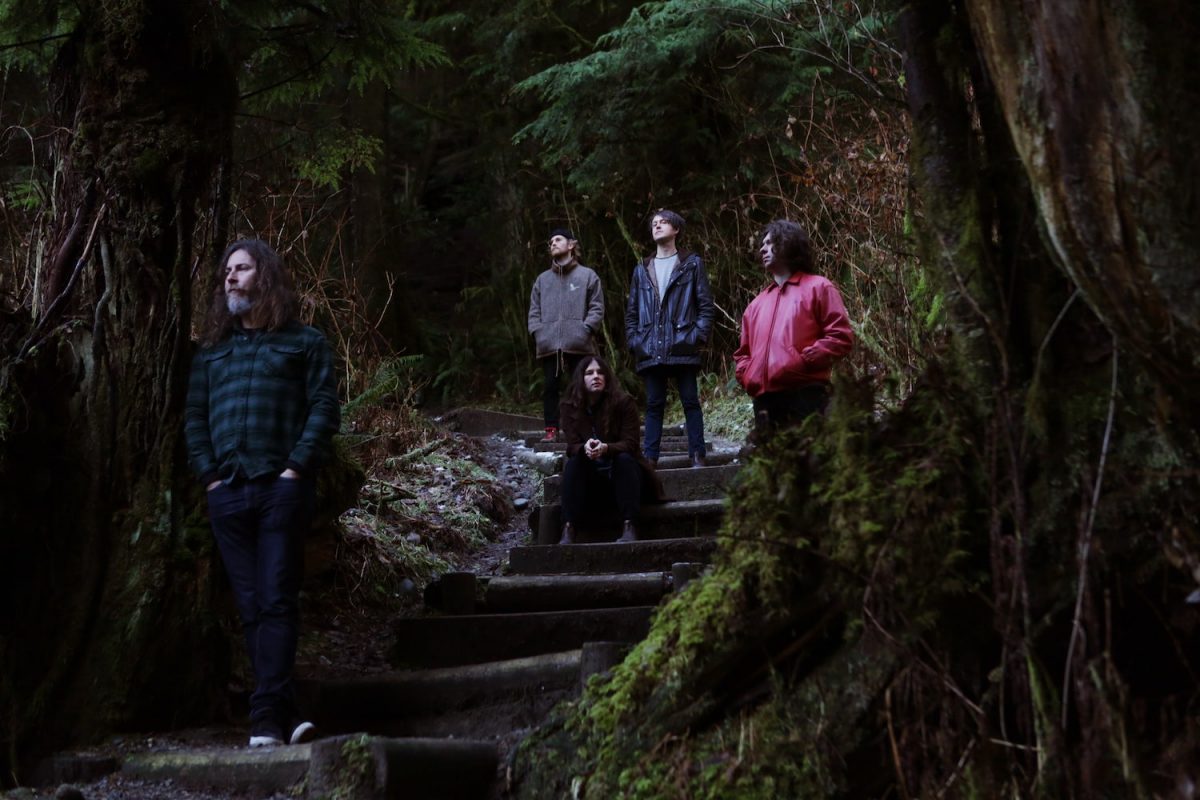
After a five-year absence, Black Mountain shines on with eclectic new record
At one point in a conversation with Stephen McBean, singer, guitarist and principal songwriter for Black Mountain, we detour into a lengthy contemplation of the keyboard’s ability to form a song’s aesthetic, even more so than the electric guitar. It’s appropriate subject matter for the band’s latest, IV, which finds electronics assuming a more influential role in Black Mountain’s songs.
“People may not even know that’s a Moog or that’s an ARP or that’s a Mellotron,” says McBean. “They’re so unique sounding that they take people to specific places in time. People hear Mellotron and they think ‘Strawberry Fields.’ Even if they don’t know what it is, and if they hear a lot of the ARP stuff or the Moog stu ff, like ’70s stuff, you think Pink Floyd or you think Tangerine Dream. Then you get to the Oberheims and it’s like, ‘Oh, it’s “Jump.” Once it gets to ‘Jump’ territory, Jeremy will argue on this, but that’s ‘no.’”
“I certainly like the Oberheim synths kind of stepping up to the front,” says keyboardist Jeremy Schmidt. “Keyboards really evoke the period that they’re indigenous to. When you hear a ’70s synth or an ’80s synth or a ’60s kind of organ or a Mellotron, they’re all quite distinctly different. Timbre-wise, they have very different voices. Your brain kind of places the song in that time period.”
On IV, as on past albums, that time period is often rooted in the ’70s. The Sabbath and Zeppelin influences are still there, but the Deep Purple from 2010’s Wilderness Heart has been replaced by shades of Pink Floyd. Indeed, album opener “Mothers Of The Sun” hints at what “Stairway To Heaven” might have sounded like had Plant and Page collaborated with Rogers and Gilmour.
“It’s weird, because we always get compared to Pink Floyd, Black Sabbath or Neil Young, which is a pretty high bar,” says McBean. “I always joke that we’re like those bands, but not nearly as good. We’re all at the points in our life now where we’re not interested in trying to reinvent the rock ‘n’ roll wheel.”
“I certainly like Wish You Were Here,” says Schmidt. “That album has a lot of the keyboard sounds I really love, and years ago when I really started getting into buying old synths and stuff, I definitely made an effort to try and find a lot of the instruments that were responsible for those very particular timbres.”
Keyboards aside, Black Mountain, which also includes singer Amber Webber and drummer Joshua Wells (bassist Matt Camirand left the band prior to IV), has made the most eclectic record of its career. And unlike Wilderness Heart, which explored the whole brevity thing, IV contains tracks once again exceeding the eight-minute mark.
“The songs are kind of all over the map,” says McBean. “I guess we were trying to make something that’s like a mix tape.”
That mix includes the trippy dreamscapes of “Defector” and “Space To Bakersfield,” the haunted folk of the Webber-penned “Line Them Up” and the late-’80s goth of “Cemetery Breeding.” And then there’s the urgent new wave of “Florian Saucer Attack,” which resembles a stoner-rock version of the B-52’s.
“I was originally going for an almost like a Neu! meets Sex Pistols or a New York Dolls kind of thing,” says McBean, “but then you add those ’80s keyboards. There you go.”
Meanwhile, “Constellations,” with its spartan riffs and otherworldly vocals from Webber, is the best thing Queens Of The Stone Age never wrote. “It’s almost like AC/DC meets later Steve Miller,” says McBean. “Or even like hip hop, because Dr. Dre used the Moog. I think we mixed it up more this time, which is cool. The eras are more confusing.”
Despite the sonic promiscuity, to longtime fans, IV will still be instantly recognizable as a Black Mountain record. Peel away the stylistic flourishes and many of the songs, as McBean explains, are “rooted in a singer/songwriter vibe,” which is only reinforced by the vocal interplay with Webber. And for all this keyboard talk, McBean still knows how to play guitar god. The flame-throwing lead on “Mothers Of The Sun” rivals peak-period Page, while “Space To Bakersfield” closes IV with a wailing, four-minute solo. “I’m proud to brag about that one,” says McBean. “That was live off the floor.”
—Matt Ryan







